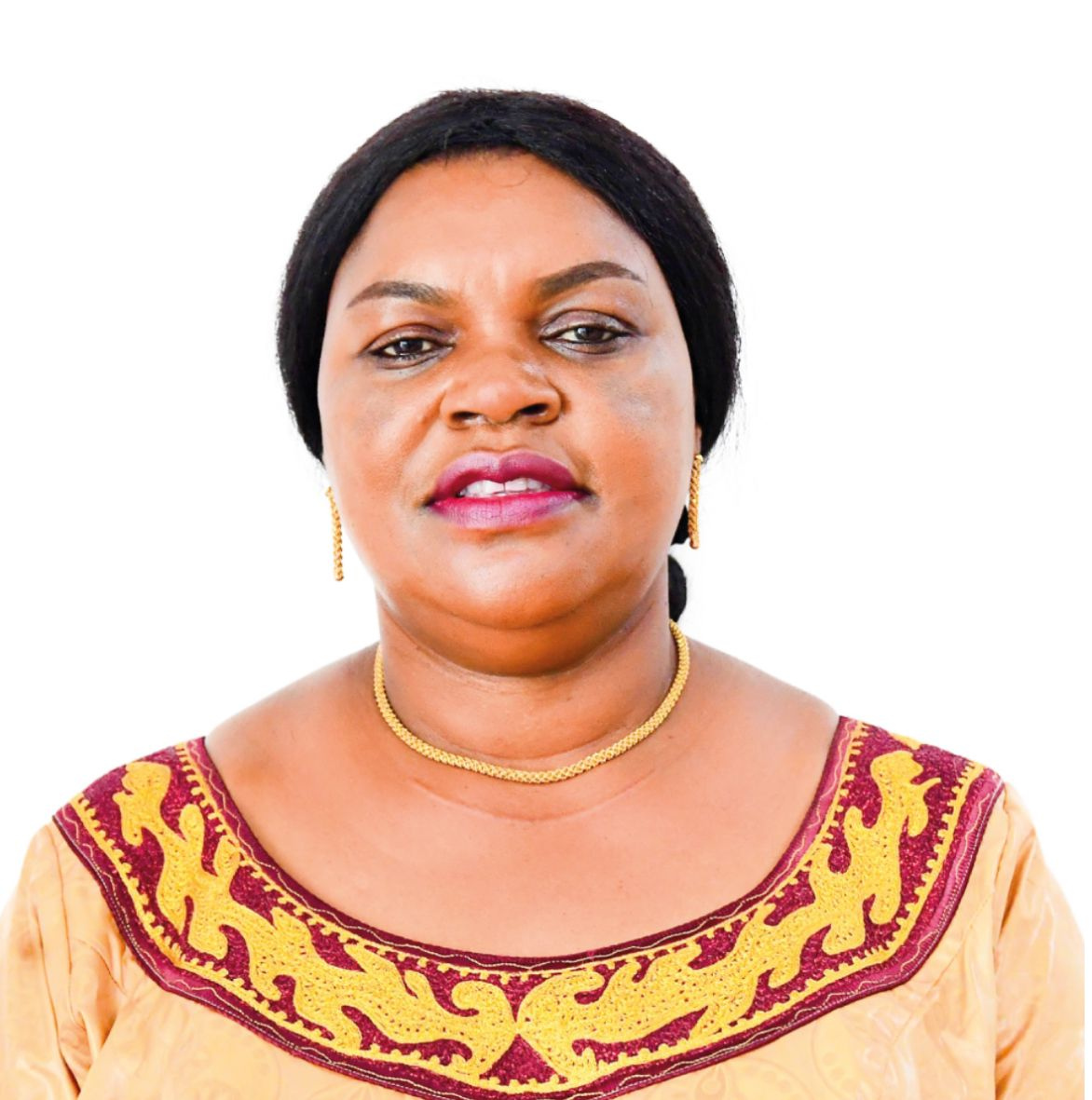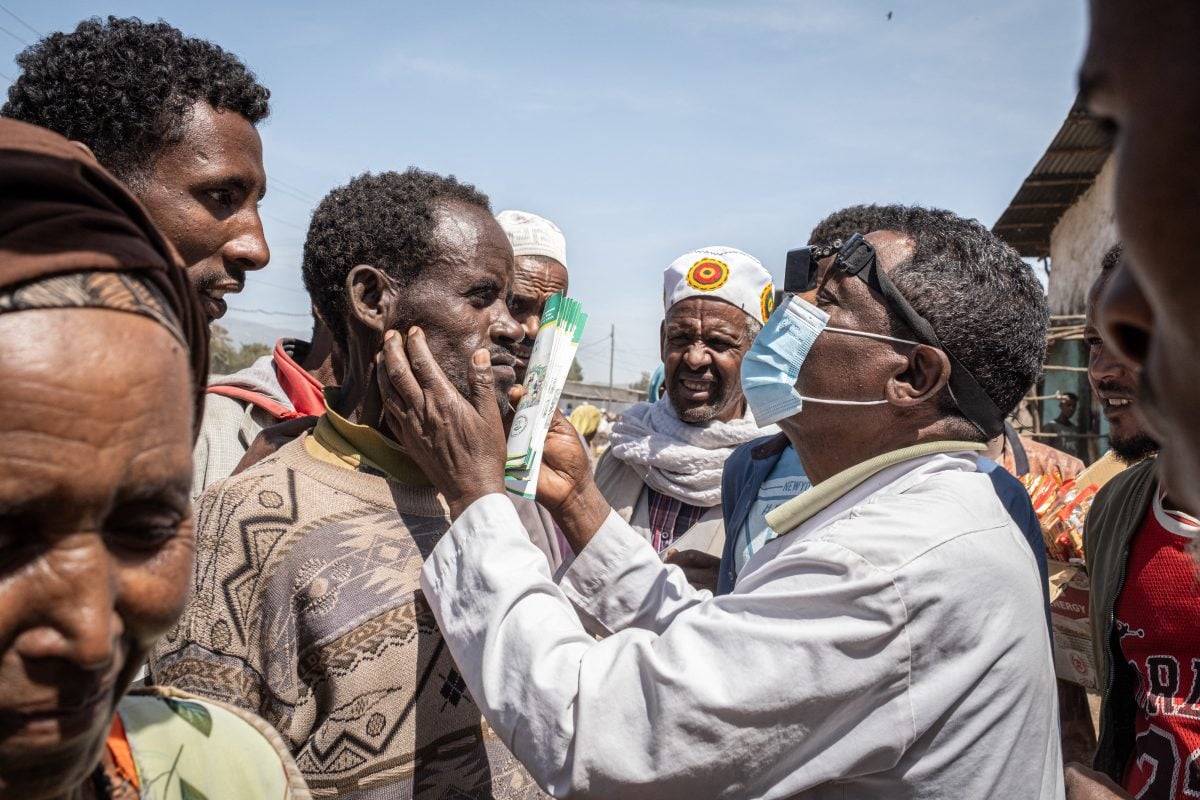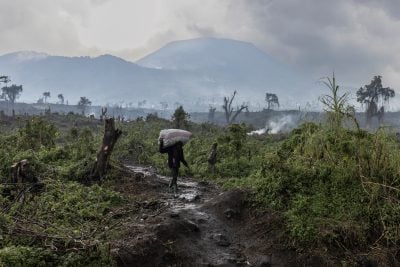Across Africa, governments are navigating an increasingly difficult health financing landscape. Significant reductions in official development assistance (ODA) are placing added pressure on already stretched health budgets. At the same time, longstanding health challenges, including infectious diseases that disproportionately affect our most vulnerable people, require sustained investment. Now more than ever, we must rise to the challenge of unlocking new and innovative sources of funding, boosting domestic resource mobilisation and reducing reliance on external aid. The World Bank International Development Association’s 21st replenishment (IDA21) presents a timely and powerful opportunity to do just that.
Neglected tropical diseases (NTDs) disproportionately burden the poorest and most marginalised people, and can cause disability, disfigurement, and even death. In recent years, countries across Africa have demonstrated remarkable leadership in addressing these diseases. To date, 23 African countries have successfully eliminated at least one NTD, showcasing our continent’s ability to lead in global health and improving health outcomes for millions of people. Tanzania is proud to be part of this progress, having made significant strides against lymphatic filariasis, trachoma, onchocerciasis, soil-transmitted helminths, and schistosomiasis, reaching more than twenty million people with preventive treatments in 2024 alone. In particular, our efforts to control lymphatic filariasis have resulted in a 93% decrease in the number of people requiring interventions since 2012.
Now, we must do everything in our power to protect and build on these gains. In this challenging financial context, African nations must urgently explore innovative, sustainable, and long-term financing mechanisms to sustain momentum toward disease elimination. One clear and strategic opportunity is IDA21, which offers grants and low-interest loans to the world’s lowest income countries, making it uniquely positioned to support sustained investment in health priorities, including the elimination of diseases such as NTDs.
A moral and economic imperative
Currently, NTDs affect a significant proportion of the population in Africa, leading to an estimated $33bn in lost household income from out-of-pocket health expenditures and wage losses. Investing in NTD elimination is both a moral imperative and a strategic economic decision. Every dollar invested in combating NTDs can leverage up to $26 in donated medicines, magnifying impact. In practical terms, a recent study indicated that Nigeria alone stands to gain $19bn in economic productivity by 2030 by meeting NTD elimination targets, while Ethiopia, Kenya, Rwanda, and Zimbabwe could collectively secure over $5bn from eliminating just two prevalent NTDs.
In addition, integrating NTD interventions into national health systems not only boosts health resilience and programme effectiveness but also maximises economic returns, creating a sustainable foundation for future prosperity. Despite these clear benefits, significant financing gaps threaten countries’ abilities to meet elimination targets outlined in the WHO Roadmap for NTDs. Addressing these gaps requires immediate and strategic action.
As governments across Africa prepare their consolidated funding requests for the 2025–2028 IDA21 cycle, there is a critical opportunity to prioritise NTD elimination programmes. Aligning closely with IDA21’s core mission of poverty alleviation, economic growth, and health improvement, funding for NTDs represents a logical and impactful investment choice for our nations.
A compelling business case
To capitalise on this opportunity, Ministries of Health and Finance must work closely together. Ministers of Health can take several practical steps to ensure NTDs are included in their country’s IDA21 request. This includes preparing a compelling business case for NTD investment that aligns with national health priorities and submitting it to the Ministry of Finance in time for inclusion in the country’s consolidated IDA application. Early engagement with World Bank country offices is also critical to understand proposal requirements, access technical assistance, and ensure NTDs are reflected in the Country Partnership Framework. By taking these actions now, Ministries of Health can help secure long-term financing to sustain progress toward disease elimination.
Dedicated budget lines for disease elimination, explicitly incorporating NTDs, must be prioritised within IDA21 proposals. Establishing clear national budget allocations will demonstrate domestic commitment, complement international resources, and enhance the sustainability of health initiatives.
As a testament to this commitment, the Tanzania Ministry of Health has already begun preparing a robust proposal highlighting the importance of investing in the elimination of neglected tropical diseases. This initiative aligns with the need to ensure that the Ministry of Health’s agenda is included in the Ministry of Finance’s document between July and August 2025 to access these funds. Uniting to Combat NTDs has also pledged support to Tanzania in developing a strong proposal to secure these funds.
Technical support is available through development partners including World Bank country offices and Uniting to Combat NTDs, offering practical assistance to countries developing strong, evidence-based IDA21 funding proposals. Leveraging such expertise can help ensure robust submissions that clearly articulate the health and economic benefits of investing in NTD elimination.
In closing, prioritising NTD elimination in IDA21 financing is not simply advantageous – it is essential. African leadership in reducing dependency on foreign assistance and unlocking new domestic financing will safeguard health equity, promote social stability, and ensure long-term economic prosperity. Immediate action is necessary. By including NTD elimination in IDA21 proposals, Tanzania like other African countries is making a powerful investment in our people’s future, reinforcing Africa’s global health leadership, and setting an example for the world.
Want to continue reading? Subscribe today.
You've read all your free articles for this month! Subscribe now to enjoy full access to our content.
Digital Monthly
£8.00 / month
Receive full unlimited access to our articles, opinions, podcasts and more.
Digital Yearly
£70.00 / year
Our best value offer - save £26 and gain access to all of our digital content for an entire year!


 Sign in with Google
Sign in with Google 




